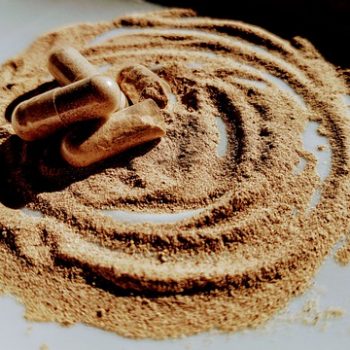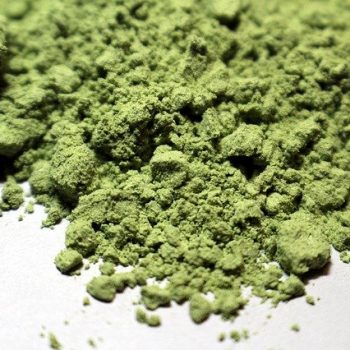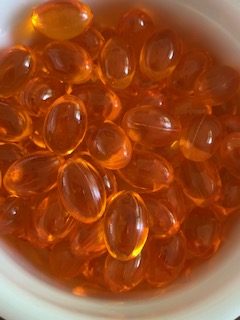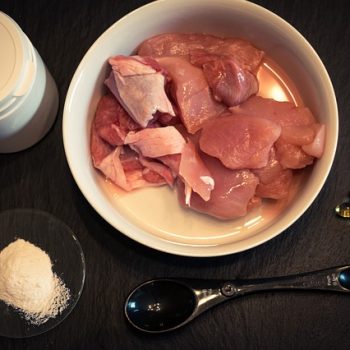Friday, October 20th, 2023
The decision to stop selling supplements on my site was made due to the industry having changed to support only the big players making it impossible to continue independepent quality testing and not have overstock or short expiry dates.
At this time clients are asking what they can use to replace those supplements as well as what to use if they need others. Here’s the best I can find as well as explanations to consider.
First, full disclosure: if you’re going to place an order feel free to use my code to receive a discount. I may receive a few points that I can use at iherb as well, but that’s certainly not the point here. http://iherb.com/?rcode=SEG722
Read more Dietary Supplements if Needed
Wednesday, March 24th, 2021
It’s always interesting to see what supplement additions people make to their dog’s diet…but they don’t really understand why. Supplement marketing often makes people feel their dog will really be missing out if they don’t feed this ONE thing. Unfortunately, that one thing turns into a box full of supplements and people lose track if the addition even made a positive difference.
These are a few of the more common “whole food” supplements that we find people add for various benefits.
Read more SOME of the supplements we DON’T give our own dogs
Thursday, September 10th, 2020
This is a popular question when people make food for their dogs and when it’s asked on social media the opinions fly. Belief systems are sometimes presented as facts, so let’s simplify 😊
The two most recognized ‘fats’ are omega 6 and omega 3. Both are essential, meaning the body can’t manufacture them so they must come from dietary sources.
Trying to balance the omega 3 and 6 content based on prey animals or historical feeding may be interesting, but unrealistic. There is no way to go back in time and see what fatty acid composition a prey animal may have had, nor are we able to duplicate it today even if we wanted to. Most of us are feeding farmed animals, so even those with access to pasture are consuming a vastly different forage from years gone by. Soil composition affects crops which affects the animals eating them and finally, the animal (dog or human) that consumes it. Add a global economy to this and you can see the possible variables. Read more What Kind of Oil Should I Use in Dog Food?
Monday, December 9th, 2019
Our preference when formulating diets is to get as many of the required nutrients from foods but the reality is there are many situations where supplements may be needed.
▶️Some dogs simply can’t tolerate the actual foods that provide the needed vitamins or minerals. Salmon and sardines provide vitamin D and EPA/DHA but many dogs can’t tolerate fish, simply don’t like it or won’t eat it consistently.
▶️ Some dogs can’t eat enough food to get the needed nutrients or they’ll gain weight, others simply won’t eat enough food. Even with a personalized, nutrient dense diet, picky dogs and easy keepers are usually candidates for supplements. Read more Supplements Or Whole Foods?
Wednesday, April 29th, 2015
Our Tori’s health challenges brought so much to the table that learning how to manage everything provided lessons she allows me to share even now that she’s gone. For example, Immune Mediated Hemolytic Anemia is exceptionally expensive to treat, and if there are relapses it becomes worse. Pet insurance was a must-have and thankfully we had it. I appreciate that it may be considered inappropriate/crude to talk about money, but I think it’s unrealistic not to. All in all Tori experienced 5 relapses, the last of which became a runaway train that no amount of money or medications could push back.
Read more IMHA, Thyroid, UTI, Supplements and More: Lessons Tori Taught
Tuesday, April 24th, 2012
Both are said to be good stuff, and heaven knows we can find them added to all kinds of foods (especially in dairy products) and supplements these days – but what the heck are they? And are they really good, or just another sales pitch being thrown our way? A bit of both, actually. I wrote a brief post about this a while back, but if my in-box is to be believed, expanding on the information is of interest to an awful lot of folks; not just for their dogs, but for themselves.
Inulin and fructo-oligosaccharides (not quite the same, but used interchangeably) aka FOS are basically nothing more than carbohydrates belonging to a class of compounds known as fructans. Read more Inulin, fructo-oligosaccharides…say what?
Tuesday, January 24th, 2012
Here’s the thing: It’s all about what the supplement is attempting to address, how safe it is for a dog, and the purity of it as well. So, what exactly are you using the supplement for? To address joint problems, digestive problems, balance a home-made diet, or are you adding supplements as a proactive measure?
First thing first. Your dog needs a balanced diet and how you go about doing that is a matter of belief system. For some, it means commercial foods and only commercial foods (no “people food”). In these cases, add supplemental taurine if the food doesn’t include it, and you might need to add a joint supportive supplement (glucosamine with chondroitin for example) if the dog has osteoarthritis, and it’s probably a good idea to add wild salmon oil and a bit of vitamin E as well. Read more Which Supplement Does My Dog Need?
Thursday, November 24th, 2011
Despite the popularity of this myth, the fact is that adding brewer’s yeast or nutritional yeast to the diet does nothing to detract fleas. I’ve often been pointed to websites and books that make this claim and some people insist that they can prove it’s true. Their proof is that their dog never had fleas while ingesting this yeast. By that logic I can point to my Zoey who never ingested brewer’s yeast and never had fleas, therefore I could claim that not eating it kept fleas away. Obviously, it’s ridiculous at best!
Consider my Ming, who lived to be just shy of seventeen years, ate a combination of kibble and (healthy) human foods, and finally a prescription diet. He never consumed yeast, yet never had fleas despite being walked along the boardwalk (a beach area in Toronto that is known for heavy flea populations) almost daily. But these are only personal stories. The facts should hold more weight, so let’s look at them. Read more Brewer’s Yeast As a Flea Preventative








